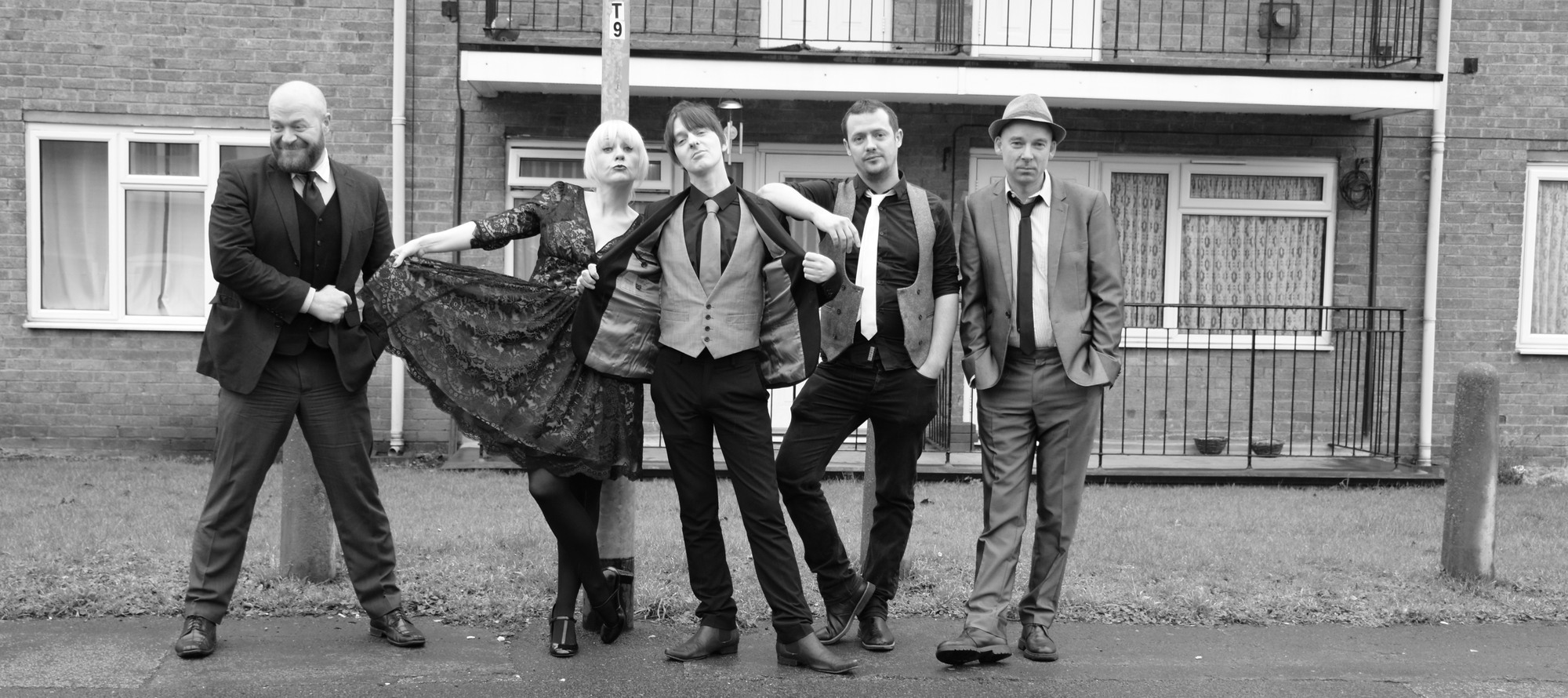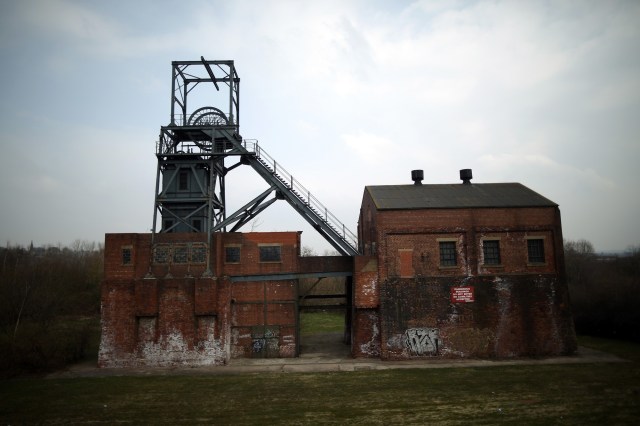The remains of the British mining industry (Credit: Christopher Furlong / Getty Images)

This addition to our series examining different cultural representations of flyover country features an album that sings of poverty, hopelessness and estrangement in Britain.
Parts of the United Kingdom have disappeared from public view over the past 30 years, and been erased from social memory. The coal mining communities in the North, in the Midlands and in Kent, that once roared in their fights for the dignity of the working class are now silent, long forgotten.
Political, economic, and institutional power has moved away from the docks, the mines, and the shipyards and found a new home in London, with the financial and political action. As a consequence, vast parts of the country are now deemed uninteresting; they’ve been left unfunded, unheard and uncared for by politicians, the media, and business. Their voices were raised in June 2016, though, when many of these communities voted to leave the European Union. That made people take notice.
But they were still misunderstood. Many would have you believe these communities voted for Brexit because they are stupid, ignorant or racist. In fact, they voted Leave because the system simply doesn’t work for them any more. They understand that they are dispensable to our ‘economy’ and they resent the fact that ever since the manufacturing industries went and the large warehouses arrived, they have been exploited and left with zero-hour contracts, low wages, and poor quality jobs with little chance of moving on to something better.
Much has been lost here. Not only has the stable and unionised work gone, those spaces that fostered working-class culture have also disappeared. The miners welfares, the working men’s clubs, the sports and social clubs that once sat alongside the industries and brought succour, relief and a sense of community to those working in harsh conditions have been closed down, boarded up.

After all those decades of purposeful de-industrialisation, and the deliberate de-valuing of working-class culture, it is unsurprising that working class voices are struggling to be heard. That’s why my contribution to the Flyover Culture series isn’t a book or a film or a television programme. It’s the voices and music of Thee Deadtime Philharmonics. They’re a few lads and a female singer from Swadlincoate in Derbyshire, one of those ex-mining towns on the front line of de-industrialisation.
‘Estate of the Heart’, their first album, is a very loud howl of anger straight from the heart of this studiously ignored part of Britain. These musicians know what it’s like to sign on, what it’s like when you can’t find a job, and they have felt the misery of struggling through a benefits system that judges them. They have low-paid, low-status jobs and they tour at night in a van that often breaks down on the M1 as they travel to play at London gigs to an audience they admit “doesn’t understand them”.
The album speaks to all of this. It is deeply political, grounded in mining history, encapsulating the attitudes of those born into dying communities in the Eighties. As Murdoch, the lead singer, said of his songwriting: “My Dad worked down the pit, my Grandad worked down the pit, his Dad worked down the pit, my Mum worked in the canteen of the pit…When I was a baby when the miners’ strike was going on it seeped into my music. My tune ‘Maggie’s Babies’ is about the knock on effect that had. You know, the industry’s gone, there’s drugs about.”
And his bleak lyrics describe the frustration of being unable to escape. On ‘Idiot Village’ Murdoch sings: “I’ve lived here all my life and I don’t want to die here.” Musically, they throw everything at it: dub step, ska, punk and rock n roll. But it’s the lyrics that stay with you.
We heard something similar in the 1980s. As Margaret Thatcher’s government set to work, anger was conveyed through a then still-vibrant working-class culture. The Specials haunted us with ‘Ghost Town’ and The Beat toasted the slogan ‘Stand Down Margaret’; Linton Kwesi Johnson told us ‘Inglan is a Bitch’ and John Cooper Clarke told us about Chicken Town.
Today, the anger of the forgotten working-classes is growing again – they’re tired of their lack of representation and the silencing of their stories – and the voice of de-industrialised Britain is growing louder. But who is listening?










Join the discussion
Join like minded readers that support our journalism by becoming a paid subscriber
To join the discussion in the comments, become a paid subscriber.
Join like minded readers that support our journalism, read unlimited articles and enjoy other subscriber-only benefits.
Subscribe